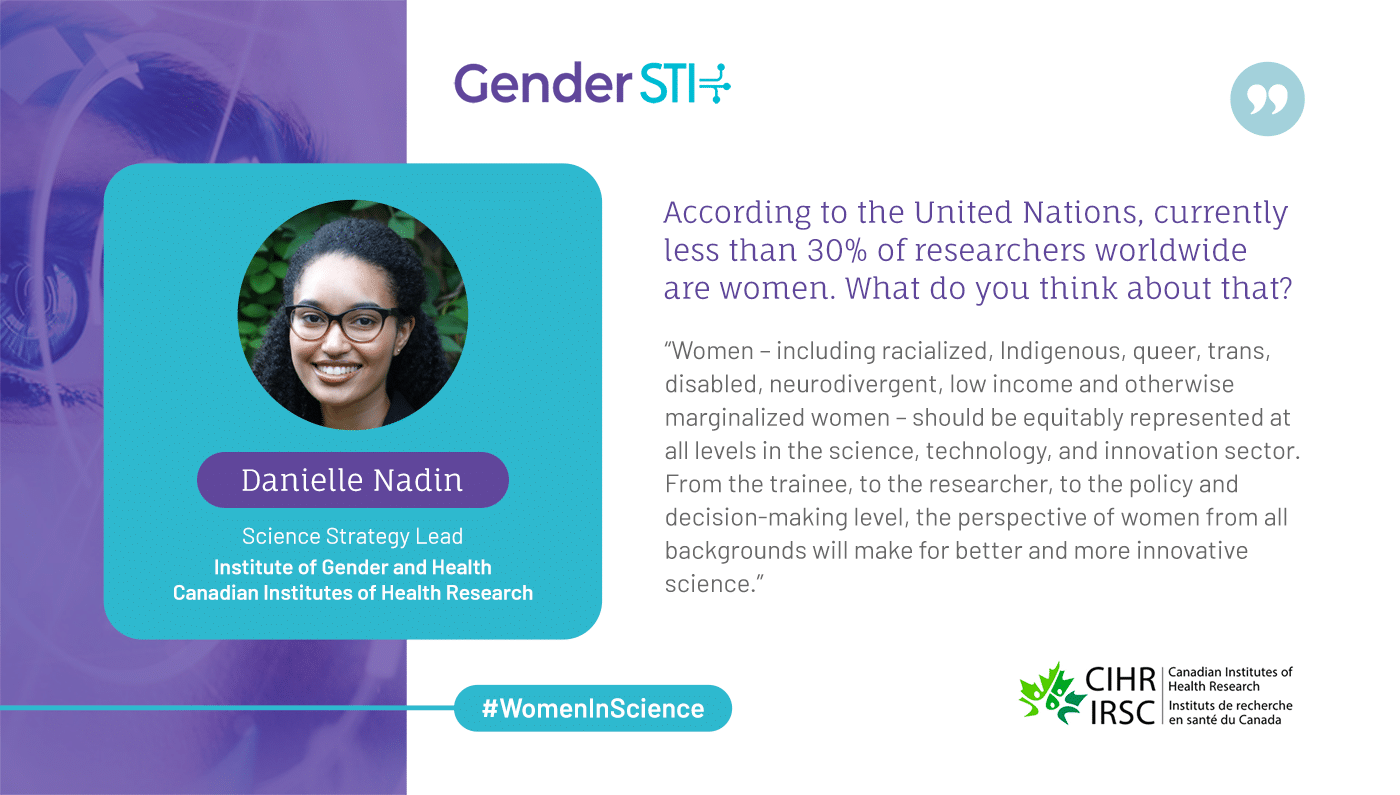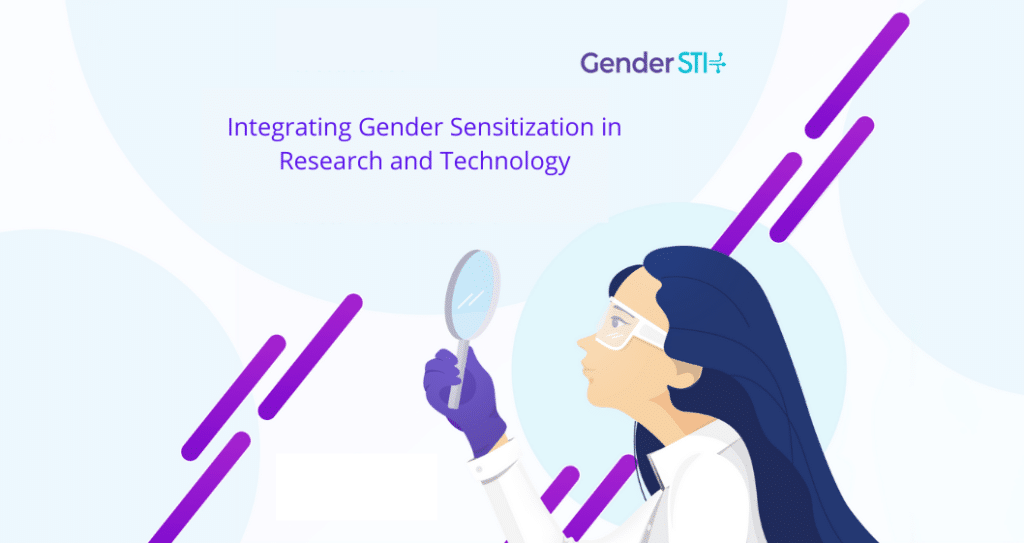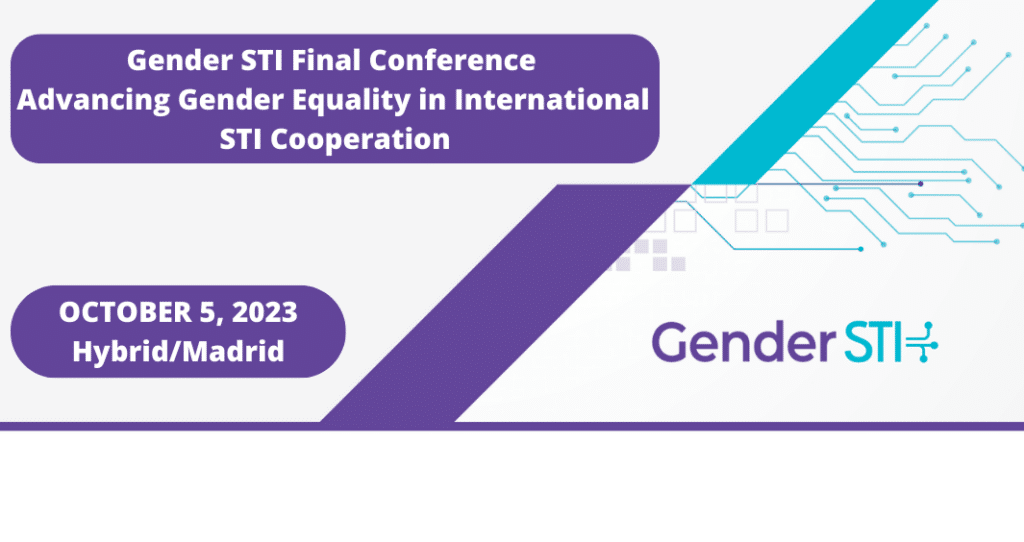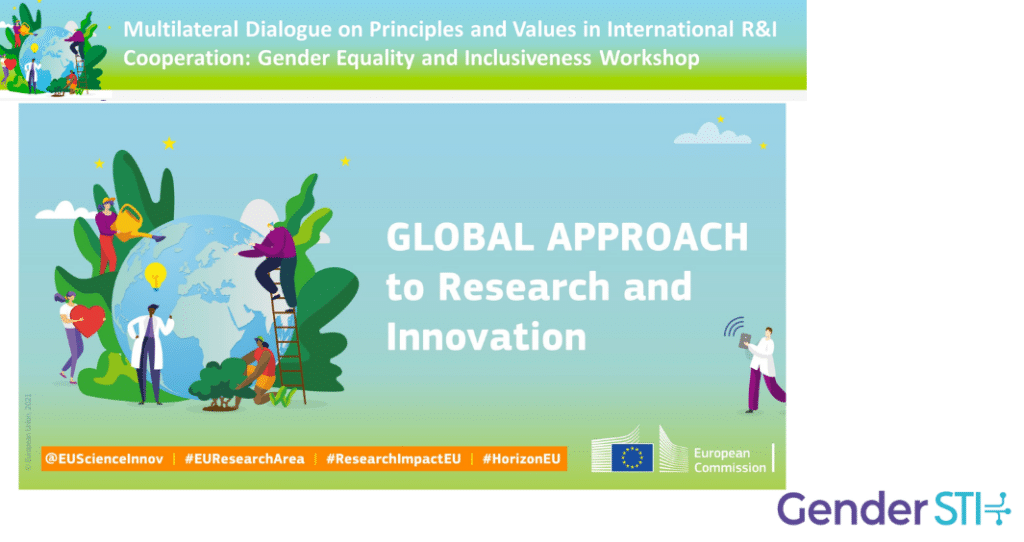This week, the world will celebrate the International Day of Women and Girls in Science on Feb. 11, which aims to promote full and equal access to and participation in science for women and girls. As part of this effort, Gender STI has launched its own #WomenInScience campaign. We talked to researchers and experts, both men and women, about why they got involved in science, what they think about current statistics on women researchers and what they think needs to be done to encourage more women and girls to pursue scientific careers.
If you don't know this incredible #WomanInScience, you should. Meet Danielle Nadin, Science Strategy Lead at the Institute of Gender and Health at the Canadian Institutes of Health Research.
What is your job position and why did you decide to work in science, technology and innovation? What does your job entail?
I currently serve as Science Strategy Lead at the Canadian Institutes of Health Research – Institute of Gender and Health. Having just completed a master’s degree in neuroscience, I wanted to continue contributing to science, technology and innovation in Canada on a broader, national scale. My role involves remaining up to date on current literature relating to intersectional sex and gender science; helping to prepare presentations, reports, and briefing notes; and developing training resources on sex- and gender-based analysis plus (SGBA+).
According to the United Nations, currently less than 30% of researchers worldwide are women. What do you think about that?
Women – including racialized, Indigenous, queer, trans, disabled, neurodivergent, low income and otherwise marginalized women – should be equitably represented at all levels in the science, technology, and innovation sector. From the trainee, to the researcher, to the policy and decision-making level, the perspective of women from all backgrounds will make for better and more innovative science.
What would you tell young girls and women who are interested in pursuing a career in science?
You belong here! Imposter syndrome is widespread throughout the science training pipeline, and this is especially true for women, particularly those who are at the intersection of multiple axes of marginalization. Good mentors can really help solidify your belief in your place in science. Navigating science training and academia can be challenging, especially if you do not have family or friends who have tread this path before to guide you along the way. Don’t hesitate to reach out to people to ask for help and to discuss their experiences.
What do you think needs to be done to encourage more girls and women to pursue scientific careers?
More needs to be done to help retain girls and women in science once they get there. From dismantling systemic biases and norms, to creating a safe environment for women and girls to learn and train, there is a lot to be done beyond merely recruiting more women and girls in this field.
What message would you send to the public on the International Day of Women and Girls in Science?
Women and girls are not a monolith. As we recognize, uplift, and hopefully inspire women and girls currently in science or considering pursuing a career in science, it’s really important that we give space to all women. For instance, the International Day of Women and Girls in Science coincides with Black History Month here in Canada. What are you or your organization doing to celebrate Black women and girls today, this month, and beyond?



